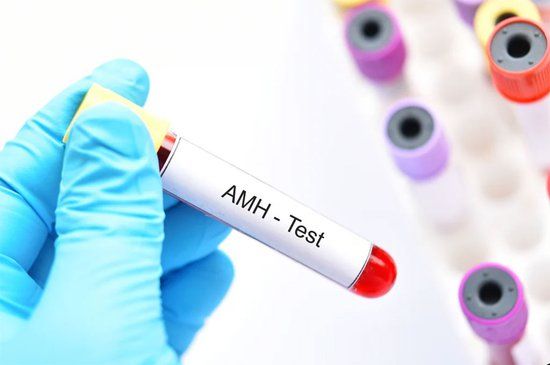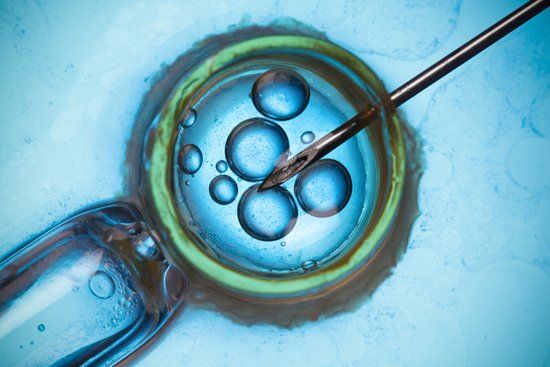
We are frequently asked by patients, which treatment is best? Learning the difference in Fertility Treatments will help you understand the best treatment for your individual circumstances. IVF, ICSI and IUI are the most common ways we can help you have a baby, but they’re very different fertility treatments, and we’re often asked by patients which is best.
Everyone’s fertility journey is different, and what may be advised for one person may not be suitable for another. In this blog we outline the main differences between IVF, ICSI and IUI, and when each would generally be recommended. While this is a great start to understanding your potential treatment pathway, our expert team will help explain what treatment is right for you.
What is IVF?
IVF stands for In-Vitro Fertilisation. It involves the use of fertility drugs to gently stimulate your ovaries to produce quality mature eggs. Once the eggs are mature, you are ready for egg retrieval. The eggs are then fertilised in our laboratory with sperm from your partner or a donor. Sperm and eggs are placed together in a special dish, and eggs are monitored for signs of fertilisation.
Fertilised eggs are called embryos. These can develop for up to five days in our specialised incubators. When they are developed, the best embryo is selected to be transferred back into the uterus to implant and grow, just like in natural pregnancy.
Advantages of IVF
IVF allows us to maximise the chance of fertilisation by placing eggs with sperm. Advanced embryo selection techniques mean we can choose the embryo with the highest potential for pregnancy. These techniques can include time-lapse monitoring and Preimplantation Genetic Screening. If you have more than one good embryo from your cycle, you can freeze the remainder for future treatment cycles.
When is IVF recommended?
IVF is designed to overcome issues that prevent sperm from fertilising an egg in the body, such as fallopian tube damage or blockages. It may also be advised in some cases of unexplained infertility or in mild cases of male infertility.
What is ICSI?
ICSI or Intracytoplasmic Sperm Injection, is a refinement of the IVF technique. Instead of mixing sperm with the egg in the laboratory, the best single, healthy sperm is extracted from the sample and injected directly into the egg to fertilise it.
Advantages of ICSI
ICSI helps you get pregnant when your partner has sperm problems. Because the sperm is injected it bypasses the other stages of early fertilisation. Only the best quality sperm is used for fertilisation, as identified by one of our Embryologists.
When is ICSI recommended?
ICSI is a treatment designed to overcome male fertility issues, such as low sperm count or poor sperm mobility, which prevents sperm from fertilising the egg naturally. It’s also used for surgically-retrieved sperm or for men whose sperm has high levels of DNA damage, which can be a hidden cause of infertility, miscarriage and failed IVF.
If sperm issues aren’t the cause of your fertility problems, IVF would usually be recommended instead.
IVF and ICSI success rates.
Previously we have published data for our clinic verified and available on the HFEA 'Choose a Fertility Clinic' webpage. The HFEA are updating their data collection system and have not been able to publish current results. The last results available for all clinics on the HFEA website are 2019 for clinical pregnancy rate and 2018 for live birth rate.
The results below for Manchester Fertility are from treatment carried out in 2021 and 2022. These are unverified by the HFEA and we cannot publish a comparison of these results with national data as it would be in a different time frame.
You can find more information regarding IVF and other fertility treatments on the HFEA website.
Fresh IVF & ICSI cycles with patients’ own eggs
Date range – January 2022 to December 2022
| Age Group | Number of embryos transferred | Clinic Pregnancy Rate |
|---|---|---|
| Under 35 | 162 | 49% |
| 35-37 | 105 | 39% |
| 38-39 | 76 | 28% |
| 40-42 | 122 | 20% |
| 43-44 | 22 | 5% |
| Over 44 | * | * |
| All ages | 490 | 34% |
* too few cycles to report a result
Fresh IVF & ICSI cycles with patients’ own eggs
Date range - January 2021 to December 2021
| Age Group | Number of embryos transferred | Live Birth Rate |
|---|---|---|
| Under 35 | 205 | 41% |
| 35-37 | 117 | 26% |
| 38-39 | 96 | 24% |
| 40-42 | 148 | 11% |
| 43-44 | 41 | 7% |
| Over 44 | * | * |
| All ages | 617 | 26% |
* too few cycles to report a result
What is IUI?
IUI is short for Intrauterine Insemination. It involves inserting your partner’s sperm – or donor sperm – into your uterus at the time you are ovulating, in the hope the egg is fertilised for pregnancy. This process is sometimes called ‘artificial insemination’.
During the treatment process, sperm is washed and prepared for insemination. This means only the most active sperm remain. The prepared sperm is then inserted into the uterus using a fine catheter. Inserting the sperm in this way means less travel distance to the egg.
Advantages of IUI
IUI can be carried out without using fertility drugs, relying on the egg you naturally ovulate that month. However, as the outcome of IUI closely mimics natural conception, you may need more than one insemination attempt to achieve pregnancy.
When is IUI recommended?
Many patients who need donor sperm to conceive, such as female same-sex couples, or are using previously frozen donor sperm choose IUI as it can be a quick, simple way to try to achieve pregnancy. A typical IUI cycle of treatment takes just four weeks.
If there are unexplained fertility issues, IUI is a good first step on the fertility journey. For IUI to work, fallopian tubes must be clear, and there must be enough healthy sperm and a mature egg to fertilise. If you have irregular ovulation, we can use fertility drugs in combination with IUI. Otherwise, IVF may be advised instead.

IVF, ICSI or IUI: Which is best?
Your fertility journey will start with initial fertility investigations. The results of your initial tests will help us decide which type of fertility treatment is best for you. An individualised approach is vital to give you the highest chance of success.
We consider factors such as your medical history, age and response to any previous cycles of treatment you may have had before. Depending on the results, you might have the option to try IUI, or you may be recommended to opt straight for IVF or ICSI, if your partner’s semen analysis reveals a sperm issue. Our focus is on achieving pregnancy in the most effective way possible.
All treatment decisions will be made in consultation with you. This ensures you’re fully aware of what your treatment path involves and your likely outcome, along with transparent costs. Understanding the different fertility pathways will help you make informed treatment decisions with the support of our expert team.
Book IVF, ICSI or IUI treatment in Cheshire
If you'd like to learn more about the fertility treatments offered at Manchester Fertility, please contact us to book a free 1-2-1 Discovery Appointment with a New Patient Advisor on 0161 300 2737 or self-refer here, you don’t need a GP referral. We have no waiting list for IVF, ICSI or IUI with partner or UK donor sperm at our Cheshire fertility clinic.
Last updated: 28th March 2024








